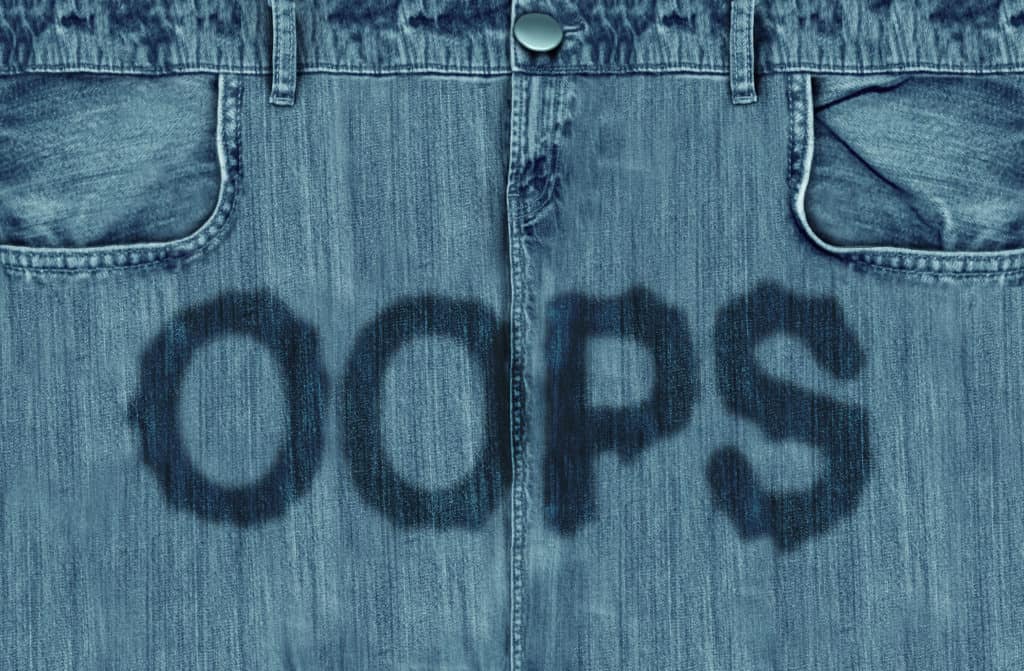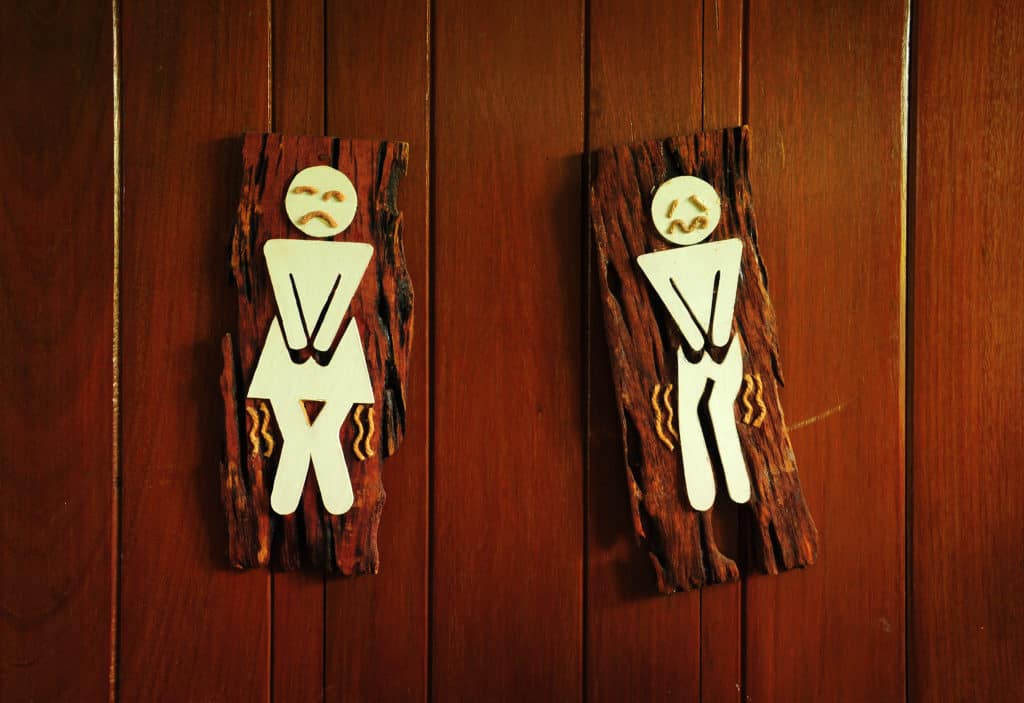How long have you put off dealing with your “leaky bladder”, or urinary stress incontinence (as it’s medically known)?
Five years, ten years, decades?
According to a National Association for Continence Survey, women wait 6.5 years from the onset of symptoms to seek help for their bladder control problems. Yet, the longer you leave it, the worse things become.
We get it. You’ve probably lost hope that things will ever get better and resigned yourself to that’s just how it is: you pee yourself a little (or a lot) when you laugh. ‘It’s no big deal’, you try to convince that nagging voice at the back of your mind.
For years you’ve been telling yourself, “It’s the price you pay for childbirth.” Even though it was so long ago, and every time you look in your children’s eyes, you conclude that no matter how uncomfortable or embarrassing it is- or how much it negatively affects your daily life – the bladder dysfunction is worth it. You wouldn’t change them for the world.
However, your children are probably grown. They’re teenagers, away at college, or even married with kids of their own. The empty nest is your chance to flip the tables and focus on you. You’re free to live it up a little and enjoy some me-time with less responsibility; New goals, aspirations, opportunities, places to go, and things to see. But you’re still suffering the so-called after-effects of their birth.
I Can Help You Regain Bladder Control
We’ve all been there. Your pelvic muscles packed up and left the building a long time ago. Nothing can stop the floodgates opening – no matter how hard you try or how many Kegels you do. You spend shopping trips, girls’ brunches, and family dinners in and out of the ladies’ room, checking for leaks inside the solace of the cubicle – sometimes, even needing to change into fresh underwear.
Running errands is a supremely stressful event – that you liken to a SWAT Team survival challenge. Survival in the sense of, can you survive without a toilet and make it around town to do everything on your list without an embarrassing leakage?
Two-hour+ car rides are a big no-no that you now refuse to do – no matter how much your friends and family protest. It’s just not worth the stress – even if it is for a much-needed vacation or family day out. Let’s not even talk about trampolines, horse-riding, or jump-around exercise classes. You even have to limit how much laughing you do.
How good would it feel to belly laugh without wetting yourself, have the confidence to attend an exercise class, or get in the car and go on an adventure (without a pin-plotted map of where the toilets are)?
And as if all of that weren’t bad enough, washable sheets, protective chair covers, and incontinence pads are the antidote to a great sex life – even if your partner isn’t too bothered. They don’t make you feel feminine, sexy, and confident, which is all-important for us to “get in the mood.”
Many of the women I treat tell me that Urinary Stress Incontinence has destroyed their confidence and taken their libido with it. This lack of libido doesn’t help matters if you’re already in perimenopause or menopause when your libido starts to decline due to declining estrogen (but some things can be done about that, too, so don’t give up on having a full and satisfying sex life if you’re 45+).
The sad thing is that most women with urinary stress incontinence have been like this since their twenties or thirties, with things getting progressively worse as they age. Their elderly mothers and Aunts suffer, too, so it’s genetic and written in the stars.
They imagine that old age for them will be in a sexless marriage wearing adult diapers and not leaving home unless there is a toilet within 3ft at all times. They think that nothing can help either – apart from taking medications, which have unpleasant side effects and long-term health risks. So, they start wearing pads, stop having sex, and start living half a life.
Does that sound like you?
It’s no life.
But it goes hand in hand with women putting everyone’s needs before their own, so it’s understandable why we put off treatment for so long. It’s part of our maternal instinct.
Importantly though, there is hope. Women don’t have to put their own needs to one side. In this blog, we answer all your most pressing questions. We explain what Urinary Stress Incontinence is. What causes it, and what you can do now and, in the future, to resolve the symptoms and get on with living your life. Without the fear of peeing yourself with every little cough, sneeze, or sudden movement.
What Is Urinary Stress Incontinence?
Urinary Stress Incontinence is a particular type of incontinence. It’s different from having an overactive bladder or urge incontinence. With these conditions, the problem is an increased need to urinate or urgency. Instead, Urinary Stress Incontinence is where you don’t feel a need to urinate, but the urine leaks out anyway. We call this “leakage”.
You’re probably recoiling at the word leakage. There is still a stigma and lots of embarrassment surrounding the issue of Urinary Stress Incontinence. Nobody wants to talk about peeing themselves during sex with their partner or while shopping for homeware in Macy’s or Nordstrom.
For most women, wetting the bed in a fancy hotel isn’t a story you want to recount over dinner. But we share our stories. You’re most definitely not alone. It may not be a good dinner party topic. Still, we should talk more openly about these things with our girlfriends, daughters, mothers, and granddaughters. We’re five times more likely than men to develop urinary incontinence.
This propensity is due to childbirth, more complex reproductive systems – with more organs near the bladder, and the hormonal changes that happen across our lifetimes. Over 50% of women will experience urinary incontinence at some point in their lives. Sadly, so many of us suck it up and keep it secret because it’s still such a taboo subject.
But it shouldn’t be that way.
We’re all in it together.
That’s why, at my physical therapy clinic in Falls Church, VA, I’m so passionate about helping women with Urinary Stress Incontinence to get their lives back. I help them get back to having satisfying sex and great social lives, fulfilled careers, joy, and adventure.
What Causes Urinary Stress Incontinence?
Many people think the cause of Urinary Stress Incontinence is pregnancy and childbirth and an unavoidable consequence of getting older. But these and other factors – like a genetic disposition or gaining weight – do play a role. Still, they’re not the full story, and childbirth and getting older doesn’t have to result in urinary stress incontinence.
The condition results from many years of not activating the pelvic muscles properly until the muscles become so weak that urine leaks from the bladder.
It may surprise you to discover that, unlike some other bladder control problems that require surgery or other radical treatment, Urinary Stress Incontinence is fully resolvable with commitment and the right help and support.
How To Stop Bladder Leakage
This line of inquiry is the million-dollar question for many women with “leaky bladder”. They’re usually desperate for a solution but don’t believe me when I tell them I can improve their symptoms because they’ve put up with it for so long. But there is plenty we can do. You don’t have to endure it.
Tip 1. Women are even more surprised when I tell them to drink more water. Yes, MORE WATER. Not less. Please don’t limit the amount you drink because you fear it’ll result in more leakage. That isn’t true. The opposite is true. When you’re dehydrated, your urine is more concentrated and therefore more irritating to your bladder, which results in more leakage. Plus, everything in your body works better when you’re well-hydrated, so drink up.
Tip 2. Next, I recommend exercises to strengthen the pelvic muscles. But the key is not to continuously do the same Kegels and expect things to get better and change. It might help a little, but you need to treat your pelvic muscles like all the other muscles in your body to see a real change. To build them up, you need to do progressive exercises that increase their strength over time.
Your form and the way you perform the exercises are essential, too, like other muscles. In my physical therapy clinic, I spend time coaching my female client on doing these exercises at home with the correct form to get the best possible results.
Tip 3. This point leads me to my final and possibly most crucial recommendation: to get professional pelvic floor physical therapy. This hands-on therapy is the fastest and most effective way to cure your Urinary Stress Incontinence and keep your bladder function problem-free for the rest of your life.
If you would like to talk about how I help cure Urinary Stress Incontinence, you can book a call with me here. You can also choose to visit the clinic to view our facilities and talk about your urinary issues one to one at a free 30-Minute Discovery Visit. The choice is yours.
I look forward to hearing from you! Let’s work this out together and help reclaim your life as you remember it.







